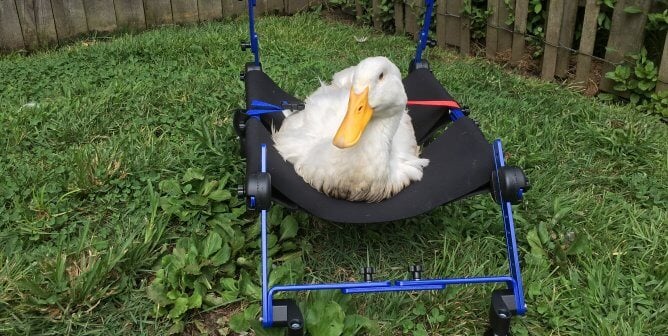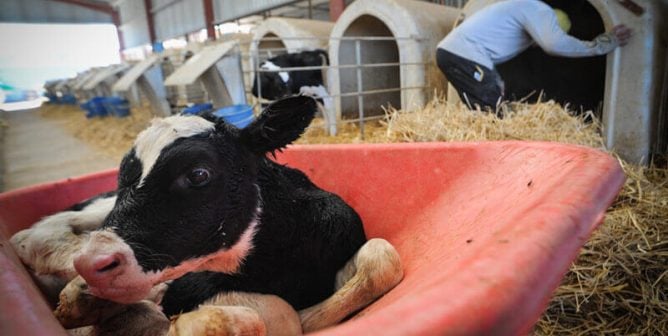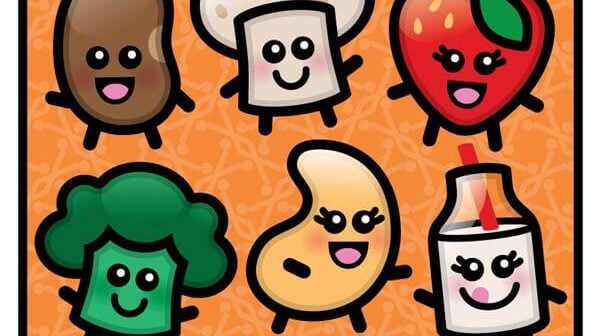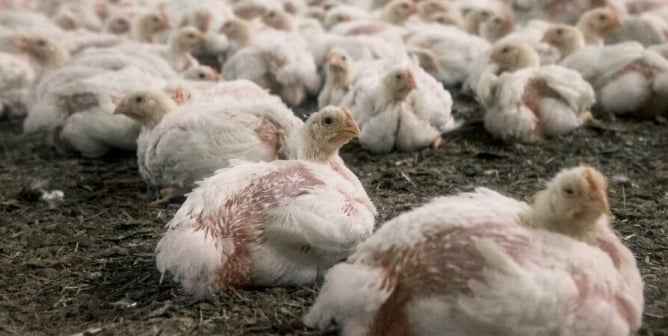Drop the Egg Experiment in Favor of Humane STEM Activities
In the name of science, technology, engineering, and mathematics (STEM), teachers often have students participate in the “egg drop” experiment. Students attempt to engineer a contraption that can hold an egg and protect it from breaking. Once they’ve made their creation, they must test it by dropping it (along with the egg) from a high distance.
When real eggs are used in this type of project, the cruelty involved in the egg industry is glossed over. In the U.S. alone, more than 300 million hens are exploited for their eggs every year. The vast majority spend their entire lives in intensive confinement—from the moment they hatch until the day they’re killed. They never get to scratch in the grass, feel the sun on their backs, or breathe fresh air. They spend every day and night in a feces-filled warehouse reeking of ammonia—alongside the bodies of many of their dead and dying friends and family members, lying on the floor or inside a filthy cage so small that they can’t even stretch out a single wing.

Nine STEM Activities That Encourage Compassion
Try one of these humane projects instead!
Oil Spill STEM Challenge
Faux feathers should be used for this activity.
Earth Day STEM Challenge: Design a Usable Bag Made of Degradable Materials
STEM Challenge: Solar Oven
Go a step further with your students—cook up a vegan treat!
STEM Challenge: Water Pipeline
April STEM Bird Feeder
Earth Day STEM Activity: Turtle Nest Protection
Build a Birdhouse: Recycling/Earth Day STEM Activity
STEM Challenge: Build a Windmill
Game Designer: Recycling/Earth Day STEM Activity
If you must do the “egg drop” activity, try creating a replica egg using the video below:
While the “egg-drop” experiment provides only one-dimensional outcomes, the STEM activities offered above can help students practice their critical thinking skills while keeping the planet and kindness to animals in mind.
*****
Like these ideas? Please share them to inspire other teachers to incorporate compassion for animals into their everyday lessons.
Need more classroom inspiration? Fill out the form below to sign up for TeachKind News.
By submitting this form, you’re acknowledging that you have read and agree to our privacy policy and agree to receive e-mails from us.





